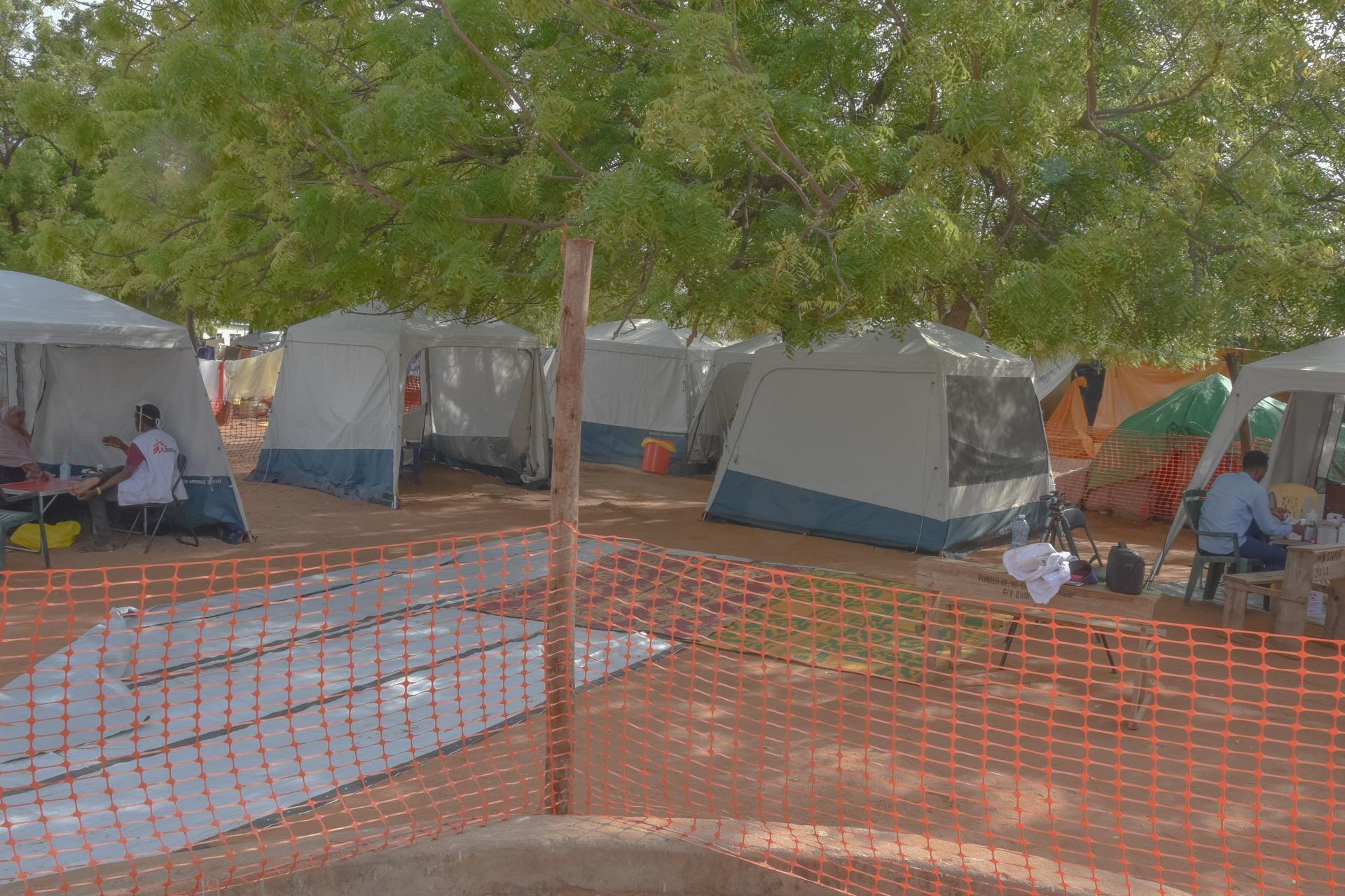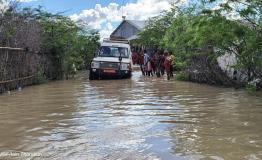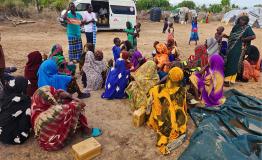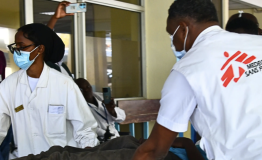On 13th December, MSF team in collaboration with Garissa County began a medical response in Garissa town following floods that caused the displacement of people from their homes. Garissa County reported over 115,308 people were affected during the floods. Garissa Township was the most affected, with around 16,698 internally displaced persons forced to live in ten internally displaced persons camps in the county. Most of the displaced people originally lived along the riverbed.
MSF began providing medical services in one fixed outpost clinic at the Ministry of Water football ground and two alternate mobile clinics conducting over 12,901 medical consultations in the last two months of the response.
“Most of the health facilities linked to the displaced communities were destroyed and inaccessible. Establishment of these health centres such as the MSF health post in the water grounds and the mobile clinics in Jaribu and Garissa bridge are key in reducing the pressure in the remaining facilities,” reported Dr. Mohamed Ahmed, Sub-County Medical Officer of Health in Garissa.
During the response, MSF provided general medical consultations to most of the displaced persons, providing essential drugs, and linkages to other facilities for continuation of care. The services included screening and linking malnutrition cases, routine vaccination for children, and medical assistance to people affected by chronic diseases. MSF also provided medical support to pregnant mothers and linkage to the nearest health facilities for continuation of the care.
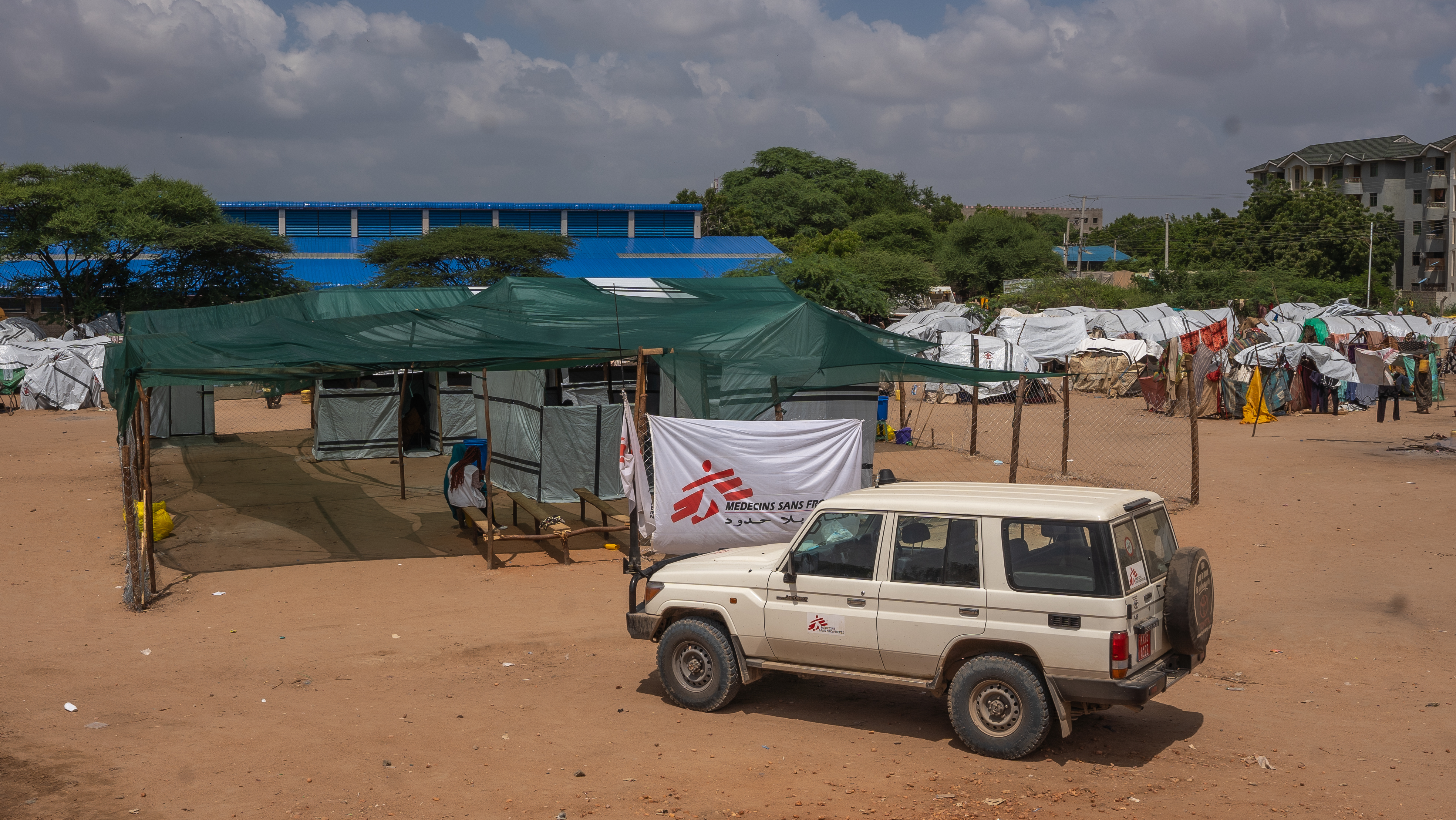
In numbers: MSF emergency response to flooding in Garissa
“I am grateful we have been having a hospital near us since with floods comes many diseases. Having been displaced, we had to use a motorbike to get to the nearest hospital, even pregnant mothers,” says Maryam Nabura Salat, a displaced person in Garissa town. “However, having the MSF hospital within the camp has made it quite easy to access care, especially during emergencies.”
In addition, MSF carried out community awareness-raising and health promotion sessions, provided water treatment tablets and soap, constructed 43 latrines in the camps and distributed long-lasting insecticide-treated mosquito nets to disaster-affected people to prevent water-borne and vector-borne diseases such as cholera and malaria. The team is constructing an additional ten latrines for the community not residing in the camp and two in the Nanep health facility.
“Patients mainly report cases of acute watery diarrhoea and upper respiratory tract infection among others,” says Jeremiah Mbithi, the emergency medical team leader. “Stress among the displaced persons is also heightened due to the displacement, loss of livelihood and lack of basic needs like food and shelter.”
“We appreciate the Garissa community’s reception and collaboration that enabled us to respond to the emergency until the situation was contained,” Josiah reiterates. “MSF encourages everyone to go to the health facilities that are fully up and running to ensure they continue getting the care they need. People can visit the nearest facility to you: Iftin Sub-County Hospital, Police Line Dispensary, GK Prison Medium Dispensary, Northeastern National Polytechnic (NENAP) dispensary, and Bulla Argi Dispensary.”
“Due to the reduction of rains and cessation of the flash floods, the critical health needs have been managed, and the Garissa County health authorities can manage the remaining health needs. MSF will thus end the emergency response activities in Garissa by 15th February 2024. We will continue monitoring the situation even beyond the exit,” says Josiah Kimeli, MSF emergency project coordinator in Garissa.
